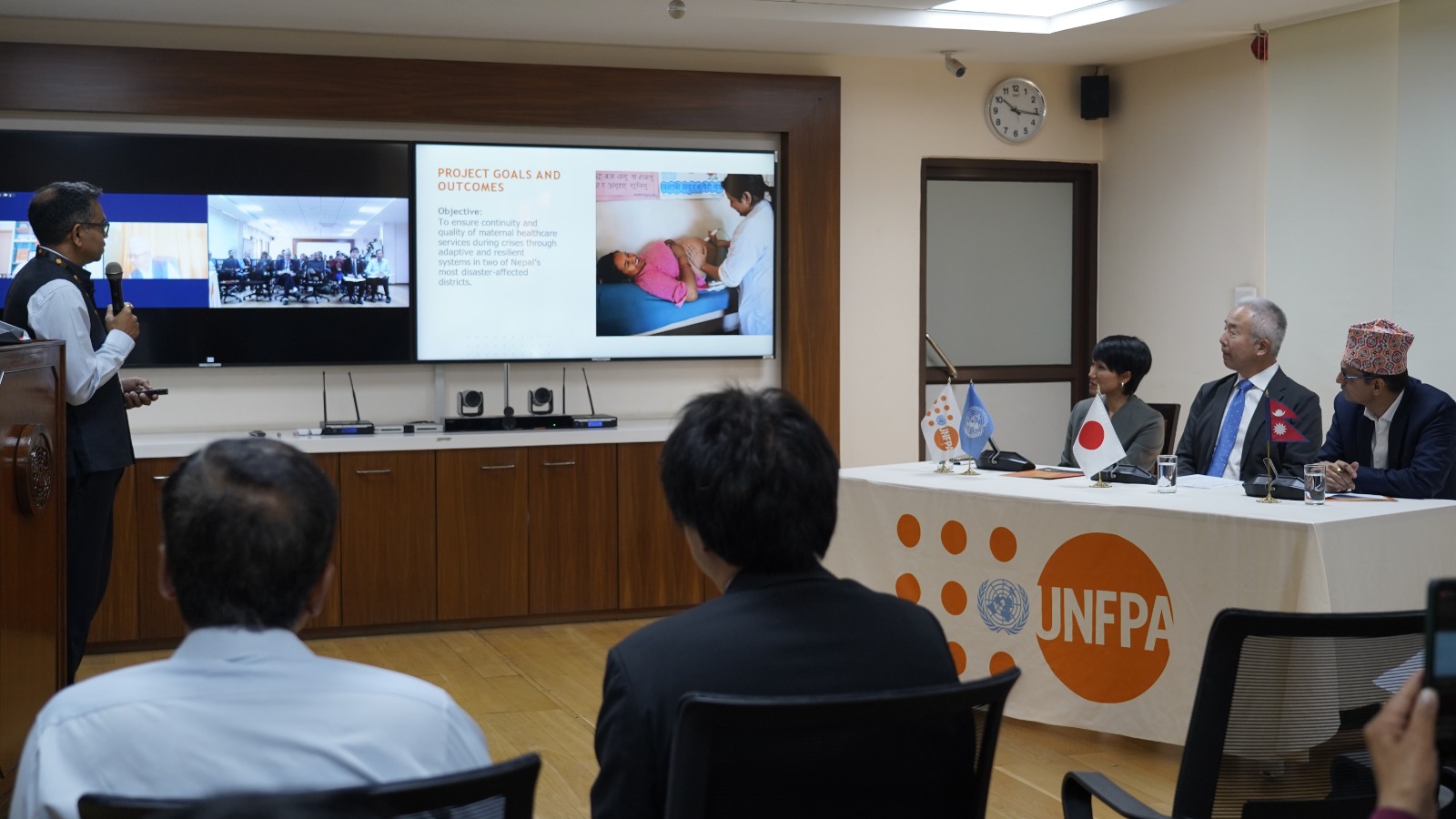Upendra Yadav is president of the Federal Socialist Forum, a political party in the Madheshi Morcha. Yadav became the face of the Madhesh movement after the promulgation of the Interim Constitution in January 2007. Yadav’s Madesi Janaadhikar Forum made an impressive electoral debut in the first Constituent Assembly elections. He was Foreign Minister in Pushpa Kamal Dahal’s Cabinet. Onlinekhabar caught up with Yadav to talk about Morcha’s immediate plans.
What is your party doing these days?
We are preparing for (another) agitation. The state is reluctant to implement agreements it signed in the past with the Madheshi and indigenous groups. When agreements are not implemented, it is only natural that agitations erupt. We say that until the issues of the Madheshis and the indigenous nationalities are addressed, national problems will remain.
The constitution has already been amended; political parties in power have also said they will address the Madesh movement. Why is there a need to agitate again?
First, let’s look at their (the ruling parties’) intentions. They passed the constitution not because they wanted to give the country a good constitution, they did it for other reasons. KP Oli’s wish was to become Prime Minister. Sushil Koirala, in his old age, wanted to become President, and Prachandaji, who had been out of power for long, wanted a way in. That is why all of them agreed to pass a constitution as soon as possible, for fulfilling their vested interests.
Many people say the movement in the Terai reached an unprecedented height, but it could not reach a decisive point. Is that so?
What has happened so far has happened for good. It is only in Nepal that people have been on the streets for six months. The agitation reached its peak; thousands of people participated in forming a human chain from Mechi to Mahakali and dozens of people became martyrs. The state should have addressed the movement there and then. We participated in 30-35 rounds of talks, but nothing happened.
If we had continued our agitation, the people would have suffered because supply of essentials was affected. We changed the form of our protests after the people urged us to do so. It is not our aim to make the people suffer. Our struggle is not against the people, or against Kathmandu. Our struggle is against the state’s discriminatory policies.
These days, we have limited our agitation to small-scale demonstrations. We have issued an ultimatum to the government (which will expire in 15 days). We wanted to give the government a window of opportunity for it to take the initiative to address the demands of the protesters.
Do you see the government utlilising the window of opportunity?
Going by the signs, the government is unwilling to do so. The Madheshi Morcha is preparing for agitation, again.
The government has already formed a political mechanism under Kamal Thapa…
It is not ‘samyantra’ (mechanism) it is a ‘shadyantra’ (conspiracy).
So, you are not going to recognise it?
We are ready to support a political mechanism (to resolve the provincial boundaries issue). But its legal status, and jurisdiction should be clear. It should have constitutional status.
Could you tell us in concrete terms what you want the government to do right away?
I say there’s no need of a mechanism. The mechanism is just a means. We want the issues of inclusiveness, identity and restructuring of the state addressed. The new constitution’s provisions regarding state restructuring contradict agreements reached in the past. Federal provinces have been delineated without taking into consideration the reports submitted by commissions that studied the issue. If you talk of rights, the new constitution has taken back rights that the Interim Constitution had granted.
When the government signed the eight-point and 22-point agreements with us, there was an understanding that the new system will give due respect to democracy, identity and federalism based on capacity and identity. The Interim Constitution explicitly says that provinces will be autonomous.
Kamal Thapa, who is also the Deputy Prime Minister, has said although he has some reservations about the new constitution, he supports it because it is not rigid. He says the constitution makes it possible for any political party to win people’s mandate and amend the law of the land. Is this not the norm in democracies?
Now, Kamal Thapa will teach others what democracy is? His nature, character and political outlook do not match his statement. First of all, do you know how a constitution is made under a democratic process? The draft is taken to the public, and amended to reflect public opinion. Should CA members not be allowed to debate every single provision of the constitution? No one was allowed to do that. The constitution as a whole was passed by suspending pre-decided procedures.
So, what form will your agitation take now?
It has always been peaceful, and non-violent, and so it shall remain.
Will there be another blockade?
There never was a blockade. The government imposed a curfew, and did not allow us to demonstrate. That is why we went to the no-man’s land to protest.
Will you picket border crossings again?
That will depend on how the government acts.
Has the involvement of India in the agitation helped or harmed the movement?
The agitation is still on. So, it would be early to reach a conclusion on this.
When we talk about India’s involvement in the Terai, which ‘India’ are we talking about?
(Laughs) Looking at things from where we are India is the Indian government.
The BJP is now in power in India. The party has been tagged as ‘right-wing Hindu nationalist’. Looking at the support pro-Hindu state leaders received during the Congress convention, and the position of the BJP in India, do you think secularism is at risk in Nepal?
I said earlier, and I say it again. The government’s decisions have put republicanism and federalism at risk. When it comes to secularism, there are only a few, who have spoken. But in India, these voices do not matter much. India itself is a secular state.
Indian leaders have not raised their concerns about this with you?
No one has told us to make a Hindu or a Muslim state. The state and religion should be separate from one another.























